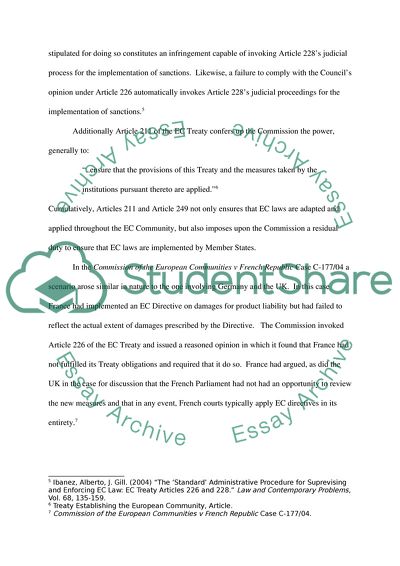Cite this document
(“EC Enforcement Procedures Essay Example | Topics and Well Written Essays - 2250 words”, n.d.)
EC Enforcement Procedures Essay Example | Topics and Well Written Essays - 2250 words. Retrieved from https://studentshare.org/law/1549481-european-law-please-see-assignment-criteria-for-title
EC Enforcement Procedures Essay Example | Topics and Well Written Essays - 2250 words. Retrieved from https://studentshare.org/law/1549481-european-law-please-see-assignment-criteria-for-title
(EC Enforcement Procedures Essay Example | Topics and Well Written Essays - 2250 Words)
EC Enforcement Procedures Essay Example | Topics and Well Written Essays - 2250 Words. https://studentshare.org/law/1549481-european-law-please-see-assignment-criteria-for-title.
EC Enforcement Procedures Essay Example | Topics and Well Written Essays - 2250 Words. https://studentshare.org/law/1549481-european-law-please-see-assignment-criteria-for-title.
“EC Enforcement Procedures Essay Example | Topics and Well Written Essays - 2250 Words”, n.d. https://studentshare.org/law/1549481-european-law-please-see-assignment-criteria-for-title.


